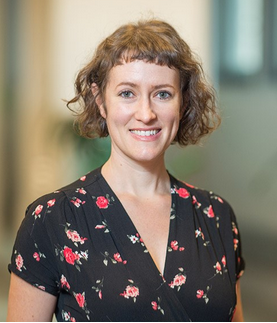Ambition in the Face of Failure
What Students Who Repeat Remedial Math Teach us About the Efficacy of Remediation
September 27, 2019
By Maggie P. Faye, ECMC Foundation Fellow
 In many postsecondary CTE programs, students must complete the required math courses. Students may be required to complete remedial or developmental coursework before they can access the coursework necessary for a program.
In many postsecondary CTE programs, students must complete the required math courses. Students may be required to complete remedial or developmental coursework before they can access the coursework necessary for a program.
There is a widespread belief that referring community college students to remedial courses can discourage them and dampen their motivation to persist. Every year at the City University of New York (CUNY) community colleges, 59% of students who fail or withdraw from remedial math courses repeat these courses one or more times to make academic progress. The existence of remedial "repeaters" challenges the assumption that referral to remedial math or failing a course saps students' postsecondary ambitions.
Given that failure rates in remedial math are high and the courses are often mandatory, it should not be surprising many students repeat these developmental courses. Nevertheless, the phenomenon of remedial course repetition has received little attention from researchers. The current idea is that by adding time and cost to the pursuit of a college degree, placement into remediation diminishes economic returns to a college credential, and sends discouraging messages to students about their potential for success and lowers students’ postsecondary ambitions. But this explanation does not account for the behavior of repeaters. Students who repeat face longer course sequences and additional costs along with the demoralizing effects of failure, and yet they persist.
My research on repeaters in remedial math shows that referral, and even repeated failure, does not lower postsecondary ambition for all students. However, the study also indicates that ambition alone is not enough to get students out of remediation and through introductory or "gatekeeper" courses. Students who repeat remedial math courses are about half as likely to attempt gatekeeper math as remedial students who never repeat, and they are less than half as likely to pass it.
Research demonstrating the high rates of attrition and low rates of degree attainment among remedial students has led to needed reforms in traditional remediation, such as the use of strategies to accelerate and contextualize remedial support. But the emphasis on attrition may also serve to imply that remedial students are too easily diverted from their educational goals. In contrast, my research finds that repeaters display a heroic level of persistence. They continue to pursue their goals despite numerous setbacks.
In my current research, Collin, a 32-year-old student pursuing a degree in photography, was initially placed into the highest level remedial math course, which meant that, theoretically, he only needed to pass one course to complete his remedial requirements. But by the time I interviewed him he had decided to drop down to the lowest level of remediation after failing the higher-level course twice, thinking that by starting at the very bottom he might be more successful. "You hear the stories of the people who are stuck in remedial courses. . . . I'm down the path already. It's like, 'how do I save myself?' Then I start feeling like I don't even know how to save myself."
Collin's experience is, unfortunately, consistent with patterns that emerge from an analysis of a large sample of CUNY students. In a sample of 9,718 first-time first-year students at three CUNY community colleges in 2013 and 2014 who failed or withdrew from a remedial math course, 59 percent repeated courses one or more times. Of these repeaters, 44 percent attempted gatekeeper math, and just 32 percent passed it. These outcomes significantly reduce credential, certificate, and degree attainment.
The weak outcomes of repeaters provide additional evidence that the traditional model of remediation is ripe for improvement. An unstated logic underlying much of traditional remediation model is that students need to repeat material they have not yet mastered and that students who fail again need more of the same. The failure of repeaters is an indictment of the idea that repetition will enable most students to learn course content.
Instead, colleges would do better to consider a corequisite model of remediation in which students start out in gatekeeper math courses with additional support. If students fail these courses, colleges could then move the student to reformed courses that take innovative approaches to deliver course content.
Remedial repeaters would seem to have every reason in the world to give up on college, yet they persist under extremely challenging circumstances. Their faith in the educational system and belief that a college degree is worth the effort are impressive; we need to find better solutions to help them develop the skills they need to be successful in college.
About the ECMC Foundation Fellow
Maggie Faye is a a Ph.D. candidate in Sociology at the City University of New York (CUNY) Graduate Center. She is an ECMC Foundation Fellow of the CTE Postsecondary Research Program at NC State – Sponsored by the ECMC Foundation. The program is part of ECMC Foundation’s CTE Leadership Collaborative Initiative.
